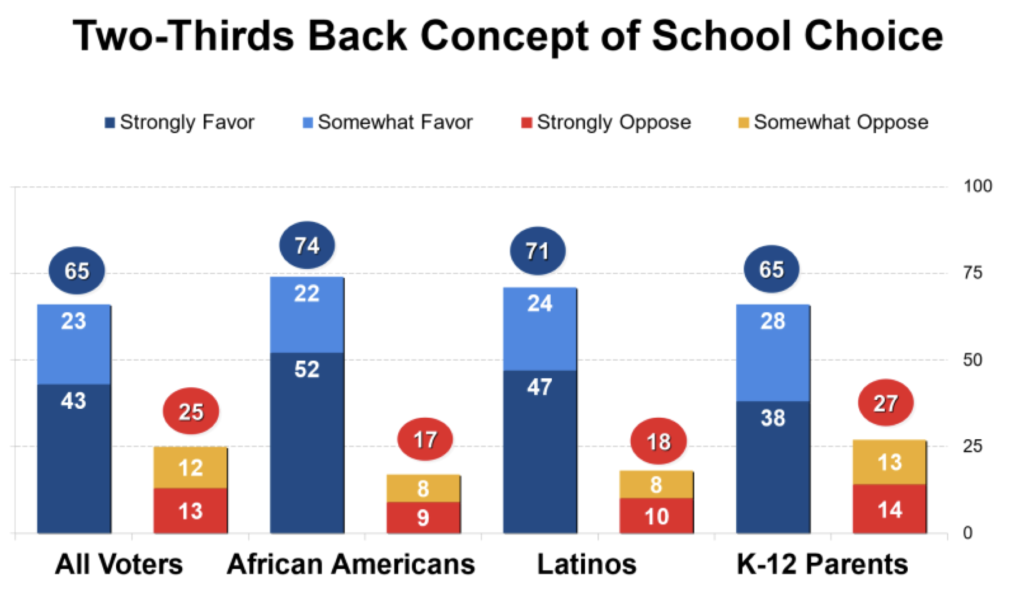Support for parental choice remains strong
Next week, schools, families, educators, and leaders will celebrate National School Choice Week. The annual celebration raises awareness about the variety of school choice options available for children across the country, from traditional public schools, public charter schools, and public magnet schools to private schools, online schools, and homeschooling.
Support for school choice—giving parents access to the K-12 education options that serve their children best—remains strong, according to January 2021 poll results released by the American Federation for Children (AFC).
Despite a chaotic and difficult year for education due to the Coronavirus Pandemic, support for school choice remains high and stable, while being backed by a broad, enthusiastic coalition. … This year, the concept of school choice is favored by a 65%-to-25% margin. African Americans and Latinos remain extremely supportive, with 74% of African Americans and 71% of Latinos backing the concept of school choice. In addition, roughly two-thirds (65%) of K-12 parents support school choice.
…
- Parental support is even higher among K-12 parents who work full-time and among middle school and high school parents (both 72%).
- School choice continues to enjoy bipartisan support. Republicans continue to be the most enthusiastic supporters (82%), but 69% of Independents and 55% of Democrats favor school choice.
AFC’s annual national survey on school choice has been conducted for the past seven years, and within that time frame, roughly two-thirds of voters have favored giving “parents the right to use the tax dollars designated for their child’s education to send their child to the public or private school which best serves their needs.” This “incredible consistency” in support “illustrates the power of school choice,” according to AFC.

With COVID-19 drawing attention to persistent educational disparities and the shortcomings of a top-down education system, parents have been considering and pursuing different learning options for their children. A majority of parent survey respondents said they would prefer to send their child to a different school over the district public school.
Currently, 83 percent of school-aged children attend district public schools according to federal data and 65 percent of our survey respondents report having their children or grandchildren attend district public schools. However, only 45 percent of parents in this survey indicated they would prefer to send their child to a district public school, while 55 percent of parents would prefer a different option. Private school is the top choice (40 percent), followed by public charter schools (8 percent).
Among parents of color, interest in non-public schools has also grown over the past year, with African American (26 percent) and Latino parents (23 percent) being more interested in private non-religious schools when compared to past survey results. Latino parents’ interest in charter schools also grew by 167 percent (from 6 percent to 16 percent).